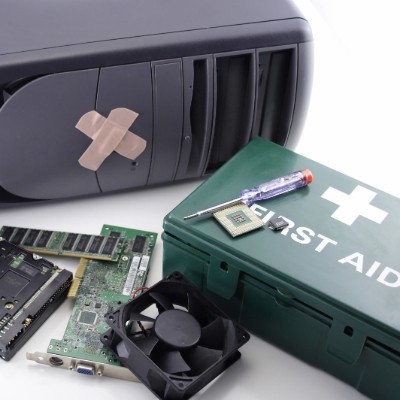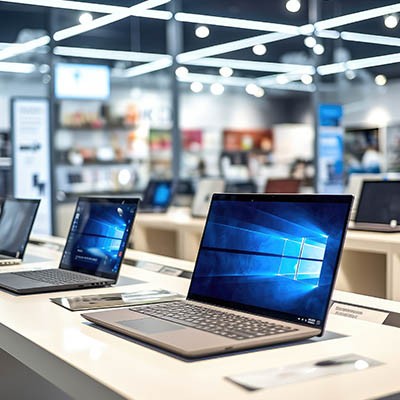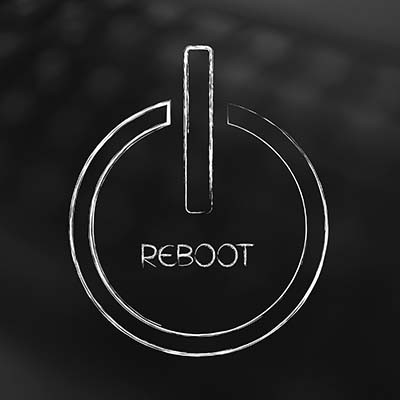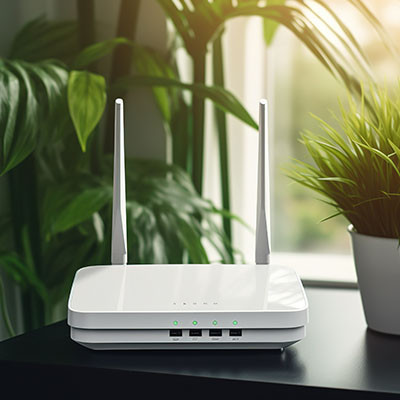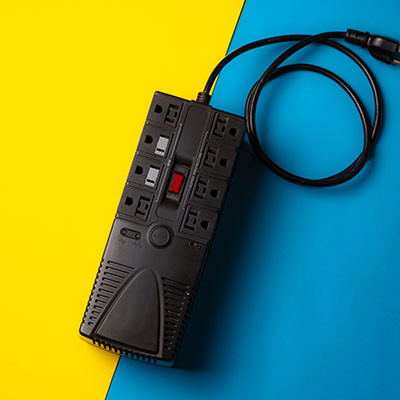If your business technology setup is driving you nuts, you’re not alone. Many business owners and managers have endless gripes about the technology they use for their business. It could be that your Wi-Fi is crawling along and not allowing for productive Internet speeds, your software feels like it was developed for Windows Vista, or you’re constantly wondering how you are going to keep your data safe. Whatever the case, it can be fixed. In today's blog, we’ll go into how to rebuild your IT plan from scratch.

- Home
- About Us
- IT Services
- Managed IT Services
- Security Services
- Cybersecurity
- Cybersecurity Overview
- Network Security
- Business Security
- Unified Threat Management
- Endpoint Security Solutions
- Asset Tracking
- Mobile Device Management
- Email Encryption
- Multi-Factor Authentication
- Spam Protection
- Content Filtering
- Phishing Simulation
- Dark Web Monitoring
- Penetration Testing
- Compliance Standards
- Cloud Computing Services
- Industry Specific
- Data Services
- Hardware Services
- Software Services
- Business Communication
- Understanding IT
- News
- Blog
- Support
- Contact Us
- (217) 428-6449
- Register
- Login
Network Solutions Unlimited Blog
If I were to ask you what technology your business possessed and where it all was right now, could you give me an answer? If not, you’ve demonstrated the importance of keeping an accurate inventory of your business’ IT.
So, let’s go over some best practices to make managing your business’ IT inventory more effective.
Hardware is far from the most fun topic for a business owner to learn more about, but that doesn’t diminish its importance. If you want to ensure your business stays ahead of the game, then you need to be strategic about your hardware implementation. Otherwise, you risk falling behind, put your business in danger, and—even worse—imperil your budget. Today, we want to help you get the most out of your hardware, long before you have to invest in anything new.
Happy Valentine’s Day! Today is a day to celebrate love, romance, and every butterfly that has ever fluttered in a stomach. However, the greatest loves can bring the greatest sorrow… particularly when the time comes to say goodbye.
Take Windows 10, for instance. PC users have loved the OS for a decade, but in a few short months, it will no longer be a good relationship for anyone—particularly business users—to maintain.
Many market analysts and industry experts foresee an increase in the cost of hardware. We recommend that you take matters into your own hands to dodge the price hike and purchase your new IT now before it costs you more to do so. The implementation of any proposed tariffs could impact the market as early as February 2025, so we wanted to discuss what you should consider when purchasing new hardware today.
With the price of hardware at risk of skyrocketing, it’s no wonder that many businesses are looking to virtualize as much of their operations as they can. This is where the cloud comes in; you can virtualize just about any solution, including some that you might not have considered in the past. Let’s explore how an SMB might use virtualization and cloud computing to skirt hardware acquisition costs.
Rebooting your device presents several benefits. If you ever experience an issue with your device, rebooting it will likely improve it. Heck, even the National Security Agency (NSA) recommends you do this… but why?
Both the router and modem are crucial components of any wireless network, yet many people are unsure about the distinct roles they play in a personal or organizational Internet connection. Let’s break down the function of each device and how they work together to support your network.
Moving is already difficult, but when you factor in your business’ IT, it becomes twice as frustrating and time-consuming. You can make it easier by preparing for the job ahead of time. Today, we want to cover what you can do to prepare for a business IT move well ahead of the scheduled date.
Digital storage has exploded, in no uncertain terms, over the last few decades. While hard disk drives (HDDs) were the predominant storage format for most of that time, today’s faster and hardier solid-state drives (or SSDs) are becoming more affordable and popular.
However, there are still plenty of HDDs out there, all far more prone to breaking than their more advanced counterparts. So, how can you tell when a hard drive failure is pending?
With mobile devices being such a big part of doing business, It’s crucial that your business has a plan to manage them. Many times this comes with a lot of hand-wringing. One of the biggest issues is whether or not the business invests in their employee mobility or if they simply demand that they gain use of employee-owned devices. In today’s blog we’ll go through the mobile management strategies of Bring Your Own Device (BYOD) and Corporate Owned, Personally Enabled (COPE).
It was very recently revealed that a global law enforcement effort took down a massive botnet that was in action for almost a decade. In light of this, we wanted to review what a botnet is and how it works, drawing from these events for some context.
The modern workplace wouldn’t exist as it does without the advent of wireless Internet or Wi-Fi. Understanding how your wireless router works can be incredibly helpful for any business owner, and it can help you get even more out of your wireless connection. Today, we want to share some information about wireless routers that can help you use them more effectively.
It’s easy to look at a power strip and a surge protector and question if there’s anything that actually makes them different. After all, they both give you extra plugs, right?
Yes, but there’s more to it than just that. Let’s review some of the important differences between the two that make one a far better choice for your business’ power delivery needs.
Love them or hate them, self-service checkout registers in brick-and-mortar stores are here to stay… especially considering that research has demonstrated that Gen Z has about twice the level of buy-in to the automated point-of-sale terminals as Gen X does, and that self-checkout is the predominant form of payment today. With this success, many have wondered how welcome biometric payment processing might be.
As it turns out, it would seem it isn’t.
Laptops are no longer exclusive to the home and work environments; indeed, more and more schools and universities are adopting laptops and other educational technology for the purposes of delivering cutting-edge instruction. Chromebooks are just one option available, if not the most cost-effective one out there. This leads to a unique set of problems, though, particularly when the software powering these devices reaches its end of life.
There’s no denying that running a successful business comes with its fair share of costs, and many would argue that some of these costs are anything but fair. As such, it makes sense to try and minimize your operating expenses by any sustainable means. Let’s go over one such cost-saving measure you can implement—Bring Your Own Device policies—and address how to do so without shortchanging your business’ security in the process.
We spend a lot of time working with the technology that businesses rely on, including the laptop workstations used by just about everyone in many organizations today. As such, we wanted to share some of our insights so that you know what qualities you should look for when you’re ready to acquire some additional devices for your business.
Digital storage is one part of computing that has seen astronomical growth over the past several decades, and with the solid state drive (SSD) more affordable than ever, you have to wonder how well your old hard disk drive (HDD) is holding up. Despite the cost difference between the two, the HDD is a viable option, albeit a mechanical one that is prone to breakdown over time.
Everyone loves a gadget. The office space has been home to some of the coolest tech, and today there are literally millions of devices that people can use in their workspace. Today, we thought we’d introduce you to three separate gadgets that may be useful in your office.
Latest News & Events
Account Login
Contact Us
Learn more about what Network Solutions Unlimited can do for your business.
(217) 428-6449
3090 N Main St
Decatur, Illinois 62526
